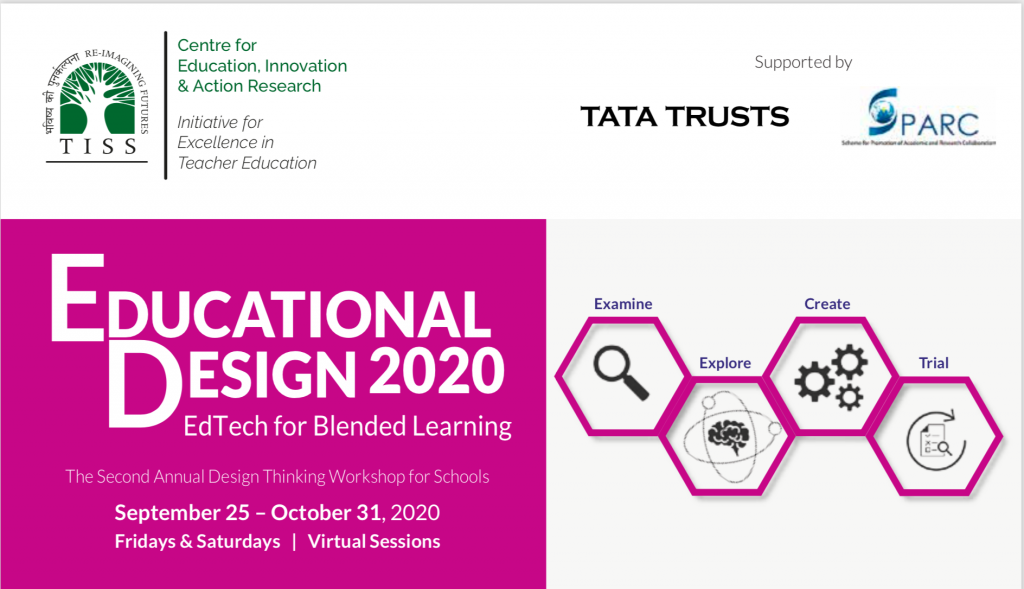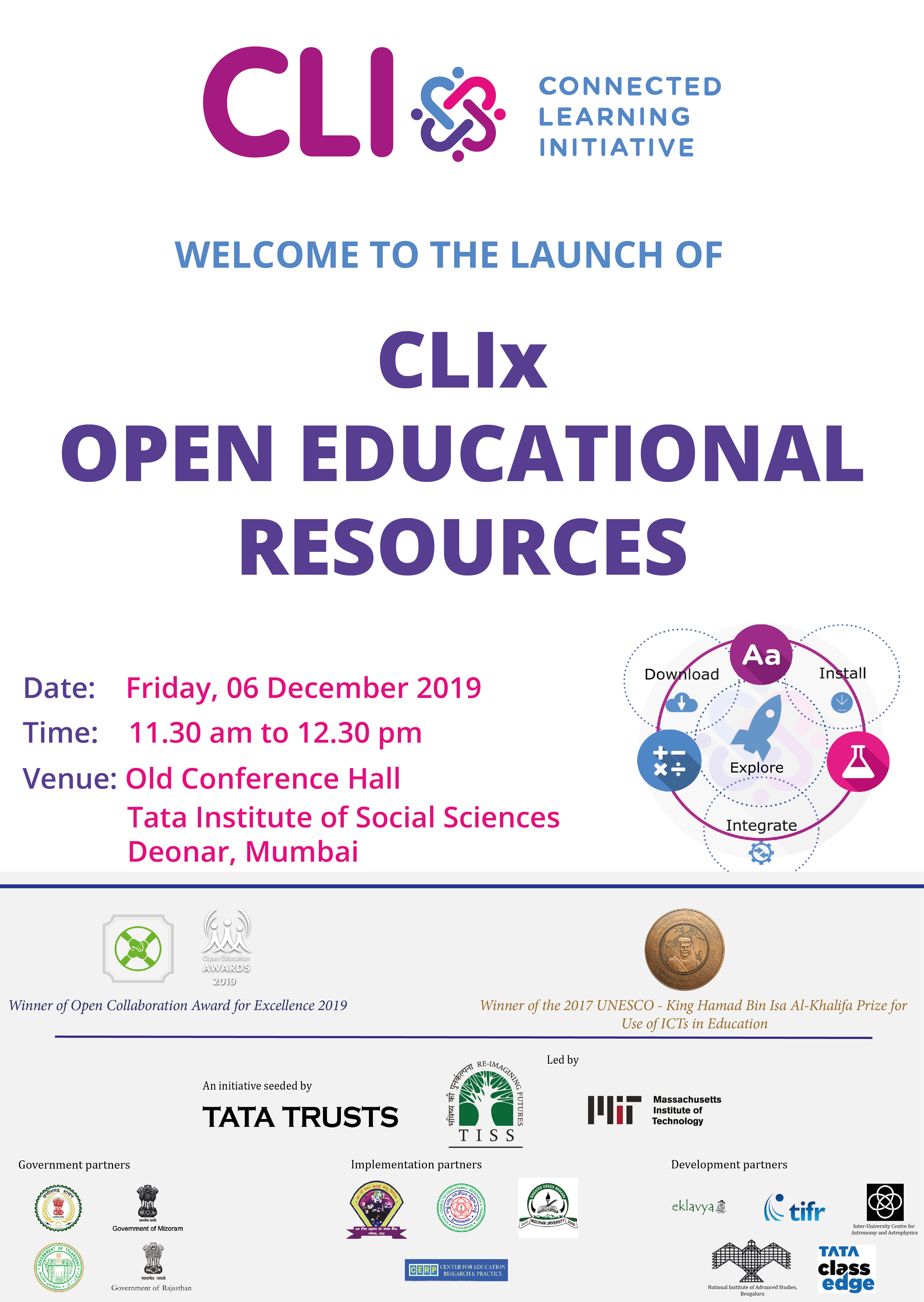CLIx DASTAAN orientation workshop [Rajasthan]
Let me start with a small introduction of myself. My name is Rudraksh Rakshit, I was born and brought up in Kishangarh in Rajasthan. I did my Post Graduation in Public Policy, Law & Governance from Central University of Rajasthan. One day a friend sent me a notification of CLIx DASTAAN Fellowship and suggested that I apply for the state of Rajasthan. I decided to enquire about it and apply. This fellowship is sponsored by the Connected Learning Initiative (CLIx) by Center of Education Innovation and Action Research (CEIAR) in partnership with TATA TRUSTS and MASSACHUSETTS INSTITUTE OF TECHNOLOGY (MIT) aiming at strengthening the competencies of high school students and teachers from rural and underdeveloped areas of Rajasthan, Telangana, Mizoram and Chhattisgarh.
I was really excited because of the bottom-up approach used in this program in curriculum framing. This will give students and teachers opportunities to provide their inputs in highly centralized Indian education system and also help in localizing the curricula based on local customs and practices; content localization will also help students to be more familiar with learning English.
I got selected after all the formal selection process i.e. online application, telephonic interview and a Skype interview and was called for a three day orientation workshop at the Tata Institute of Social Sciences, Mumbai from 21stDec. to 23rd December 2015.
I reached Mumbai on 21st around 12:00 pm and because I got late I missed the first session of day 1. The point I entered in the workshop room I got a task to go to the campus and click 5 pictures telling a story and to record an audio story of any person (and it should not be an interview) within a short span of time. It was really exciting and challenging too to go and explore a world of strangers but somehow I could manage to do so and after that I met other fellows of DASTAAN fellowship – Saurav, Rekha and Lalrinmuana. After lunch we discussed the reading Research with children: the same or different from research with adults? that was provided to us earlier by email. The discussion which followed after question and answers session helped me to understand different perspectives of my peers.
On day two we started with presenting our Photo Essay and Audio stories to the group. It was fun to see the photo essays of other fellows. It was interesting to see that within the same spheres what we fellows have observed and how everybody came with different stories. After this we presented our audio stories and got constructive feedback about our work by the mentors. This feedback will go a long way in helping us on the field when we capture or record stories.
After this we got another exercise after an insightful discussion – we had to go to the campus and find the people who can be the potential learners of English. It was a bit different for me because I met a person who was a driver by occupation and knew the importance of English in today’s world but didn’t want to learn at this age. It was a bit challenging to motivate him. Based on our experiences we created the learner’s profile. This exercise helped me in understanding the individual’s learning style and need and also how to make my plan and tools according to that. We also went through a Focus Group Discussion (FGD) with an experienced moderator, it helped me to learn the process of conducting a FGD and Do’s and Don’ts when conducting a FGD. We also listened to the experiences shared by Ms Karuna and watched a documentary shot by her with her team. This session gave me an idea about the challenges we are going to face while working and after that we were told about our work more precisely that gave us more clarity about our work. This is how our day 2 ended.
Day three started with the session on framing research questions, methodology about our projects followed by the discussion and guidance by the mentors and we got feedback. After lunch we participated in a session of story building with other fellows. It was really an interesting activity to develop a story by making a sentence from whence the fellow member left it, thus building a story contributing sentences one by one. We also developed our own story based on a given situation.These kind of exercises will help us in engaging adolescents in our work and to know them better. We also clicked pictures and posted them on Instagram with the hashtag #CLIxDASTAAN2015
This is how my exciting three days of orientation workshop passed. Though all the fellows are not together, we have a Google group on which our discussions take place and we will continue to get the advice from our mentors.




